Discover the ins and outs of becoming a Licensed Practical Nurse (LPN) – from education and certification to career prospects and growth opportunities. This comprehensive guide provides valuable insights for aspiring healthcare professionals.
Who is a Licensed Practical Nurse (LPN)?
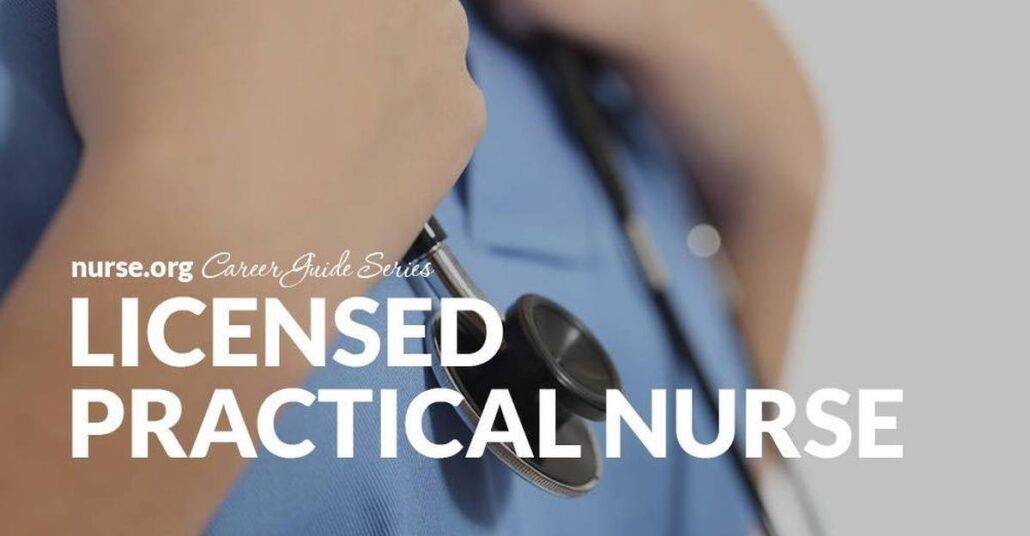
A Licensed Practical Nurse (LPN) plays a crucial role in the healthcare system, providing essential nursing care under the supervision of registered nurses (RNs) and doctors. LPNs are skilled healthcare professionals who assist with various aspects of patient care, including administering medications, monitoring vital signs, dressing wounds, and providing basic patient education.
They work in a variety of healthcare settings, such as hospitals, long-term care facilities, clinics, and home health agencies. LPNs are known for their compassion, attention to detail, and ability to work as part of a multidisciplinary team.
LPNs are licensed healthcare practitioners, and their responsibilities may vary by state or region. They work closely with both patients and healthcare providers to ensure that individuals receive high-quality, personalized care.
How Long Does it Take to Become a Licensed Practical Nurse (LPN)?
Becoming a Licensed Practical Nurse (LPN) typically involves completing a formal education program, which can vary in length. Most LPN programs last around 12 to 18 months, depending on the institution and the specific curriculum. These programs combine classroom instruction with hands-on clinical experience to provide a well-rounded education.
After completing the educational requirements, aspiring LPNs must pass the National Council Licensure Examination for Practical Nurses (NCLEX-PN) to obtain their license. The preparation for this exam and the licensing process can take several additional weeks. Overall, the journey to becoming a licensed practical nurse can range from 18 to 24 months, making it a relatively expedited pathway into the nursing profession.
What Does a Licensed Practical Nurse (LPN) Do?
Licensed Practical Nurses (LPNs) are instrumental in providing direct patient care. They administer medications, monitor patients’ vital signs, assist with personal hygiene, dress wounds, and perform basic medical procedures. LPNs also collaborate with registered nurses and other healthcare professionals to develop and implement care plans. Additionally, they play a crucial role in providing emotional support to patients and their families, helping to create a comfortable and nurturing environment.
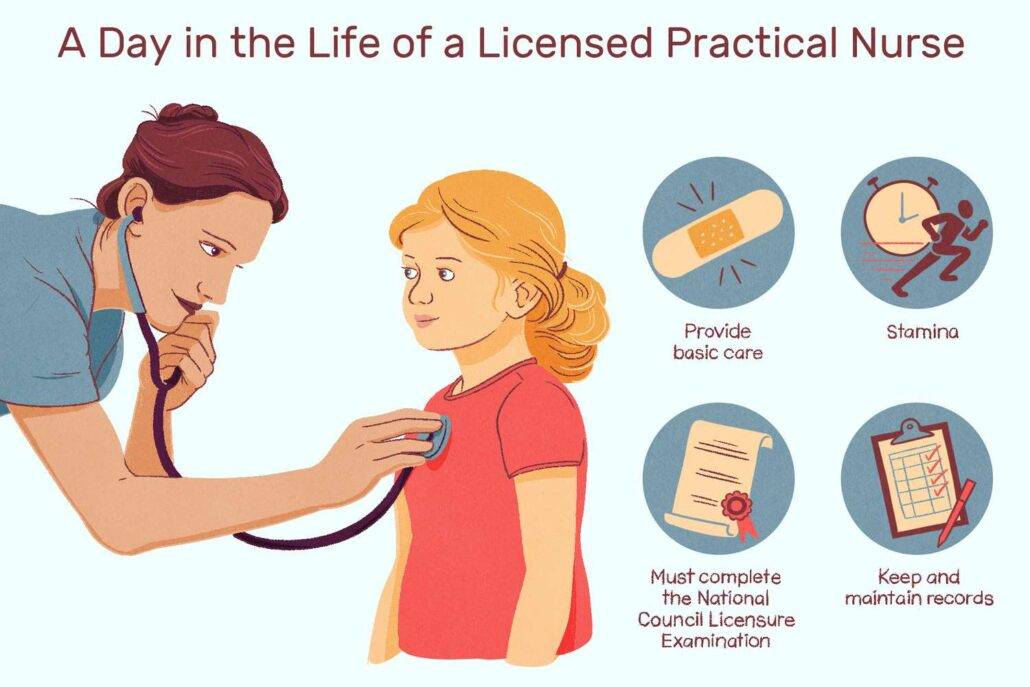
In various healthcare settings, LPNs work closely with patients across the lifespan, from newborns to elderly individuals. Their responsibilities may include monitoring the progress of patients with chronic conditions, assisting with rehabilitation exercises, and ensuring that all aspects of care are delivered with precision and compassion. Overall, LPNs are integral members of the healthcare team, contributing significantly to the well-being and recovery of patients.
How to Become a Licensed Practical Nurse (LPN)
To become a Licensed Practical Nurse (LPN), one must follow a structured educational pathway. This typically involves enrolling in an accredited LPN program offered by vocational schools, community colleges, or technical institutes. These programs cover essential nursing knowledge and skills through a combination of classroom lectures, laboratory simulations, and clinical rotations in healthcare facilities. Upon successful completion of the program, graduates are eligible to sit for the NCLEX-PN, a standardized licensing examination administered by state nursing boards.
After passing the NCLEX-PN, individuals can apply for state licensure to officially become an LPN. It’s important to note that licensing requirements may vary by state, so it’s advisable to check with the respective state nursing board for specific details. Additionally, continuing education and periodic renewal of licensure may be required to maintain active LPN status.
Educational Requirements for Licensed Practical Nurse (LPN)
To pursue a career as a Licensed Practical Nurse (LPN), candidates typically need a high school diploma or equivalent as a prerequisite. The next step involves enrolling in an accredited LPN program, which can be found at vocational schools, community colleges, and technical institutes. These programs provide a comprehensive curriculum that covers anatomy, physiology, pharmacology, nursing fundamentals, and clinical practice.
Additionally, LPN programs incorporate hands-on training through clinical rotations in healthcare settings. This hands-on experience is essential for students to apply theoretical knowledge in real-world situations and develop critical skills needed in the field.
Licensed Practical Nurse (LPN) Certification and Exam Requirements
Upon successful completion of an accredited LPN program, graduates are required to pass the National Council Licensure Examination for Practical Nurses (NCLEX-PN). This standardized exam is designed to evaluate the candidate’s competence in providing safe and effective nursing care. The NCLEX-PN covers various aspects of nursing practice, including basic care and comfort, health promotion and maintenance, physiological adaptation, and more.
Passing the NCLEX-PN is a crucial step towards obtaining licensure as a Licensed Practical Nurse. It is recommended that candidates thoroughly prepare for this examination through dedicated study and practice, as successful performance on the NCLEX-PN is a key milestone in the path to becoming a licensed healthcare professional.
Where do Licensed Practical Nurses (LPNs) Work?
Licensed Practical Nurses (LPNs) have diverse employment opportunities across various healthcare settings. They can be found working in hospitals, nursing homes, long-term care facilities, clinics, physician offices, rehabilitation centers, and home health agencies. Additionally, LPNs may also find employment in schools, correctional facilities, and community health organizations.
The versatility of their skills allows LPNs to adapt to different environments and provide essential care to patients in a wide range of circumstances. This diversity in work settings enables LPNs to choose a career path that aligns with their interests and professional goals.
Licensed Practical Nurse (LPN) Career Outlook and Career Growth
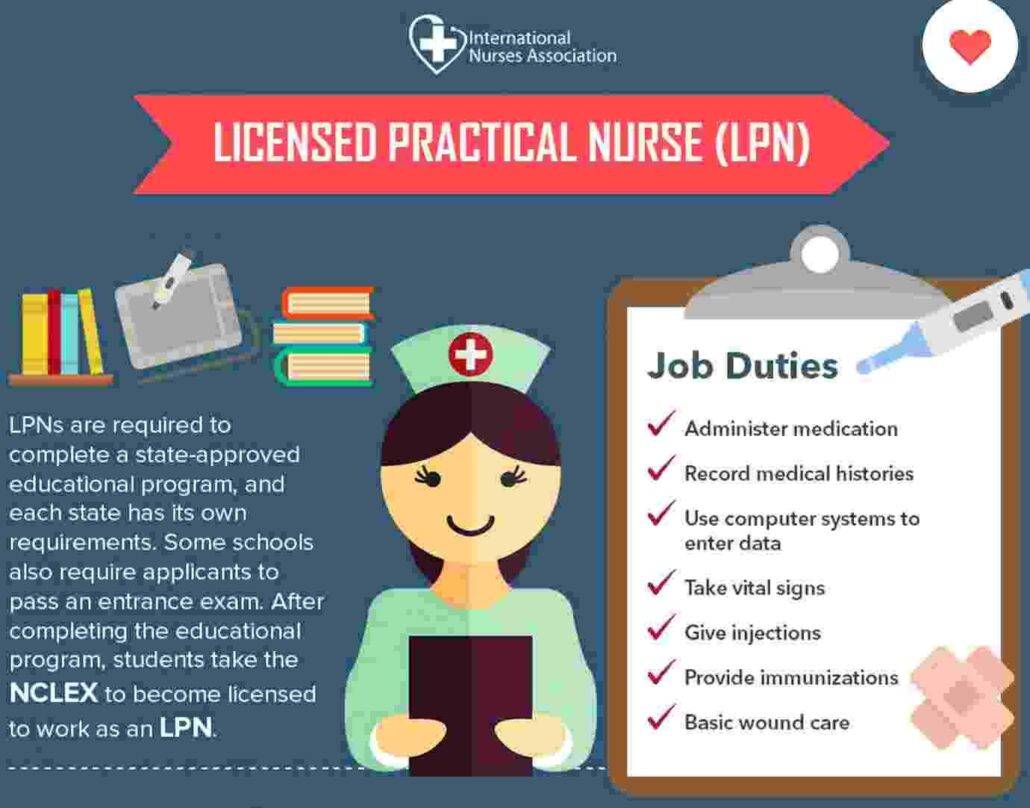
The demand for Licensed Practical Nurses (LPNs) is expected to remain strong in the coming years. With an aging population and an increasing need for healthcare services, LPNs play a vital role in providing quality care to patients of all ages. Employment opportunities for LPNs are projected to grow in various healthcare settings, particularly in long-term care facilities, home health, and community health organizations.
Furthermore, LPNs have the potential for career advancement through further education and specialization. Some LPNs choose to pursue additional certifications or degrees, which can open doors to roles with increased responsibilities and higher earning potential, such as becoming a registered nurse (RN) or specializing in a particular area of healthcare.
Qualities of a Licensed Practical Nurse (LPN)
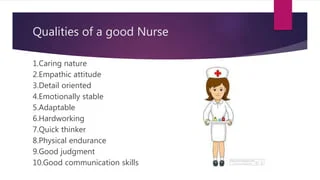
Licensed Practical Nurses (LPNs) possess a unique set of qualities that enable them to excel in their role. Compassion and empathy are at the forefront, as they are responsible for providing hands-on care to patients, often during vulnerable moments. Attention to detail is crucial, ensuring that medications are administered accurately, and vital signs are monitored precisely.
Adaptability and the ability to work in a fast-paced environment are also essential, as healthcare settings can be dynamic and unpredictable. Effective communication skills, both with patients and fellow healthcare professionals, are vital in ensuring coordinated and comprehensive care.
Additionally, LPNs must exhibit strong problem-solving abilities, especially when faced with unexpected challenges in patient care. A commitment to continuous learning and professional development is key to staying current with best practices and advancements in healthcare. Overall, the combination of these qualities contributes to the success of LPNs in providing high-quality care to patients.
Top Licensed Practical Nurse (LPN) Programs
When considering a career as a Licensed Practical Nurse (LPN), it’s crucial to choose an accredited program that provides comprehensive education and clinical experience. Some renowned LPN programs include those offered by community colleges, vocational schools, and technical institutes with a track record of producing highly skilled and competent graduates. Additionally, factors such as program length, clinical opportunities, and NCLEX-PN pass rates should be taken into consideration when evaluating potential LPN programs.
Online Programs for Becoming a Licensed Practical Nurse (LPN)
While some aspects of LPN education require hands-on clinical experience, there are online programs available that offer the didactic portion of the curriculum in a flexible format. These programs typically incorporate virtual simulations and interactive modules to replicate clinical scenarios. It’s important to note that while online LPN programs can provide a convenient option for some learners, they may still require in-person clinical rotations to ensure students gain the necessary practical skills.
Salary of a Licensed Practical Nurse (LPN)
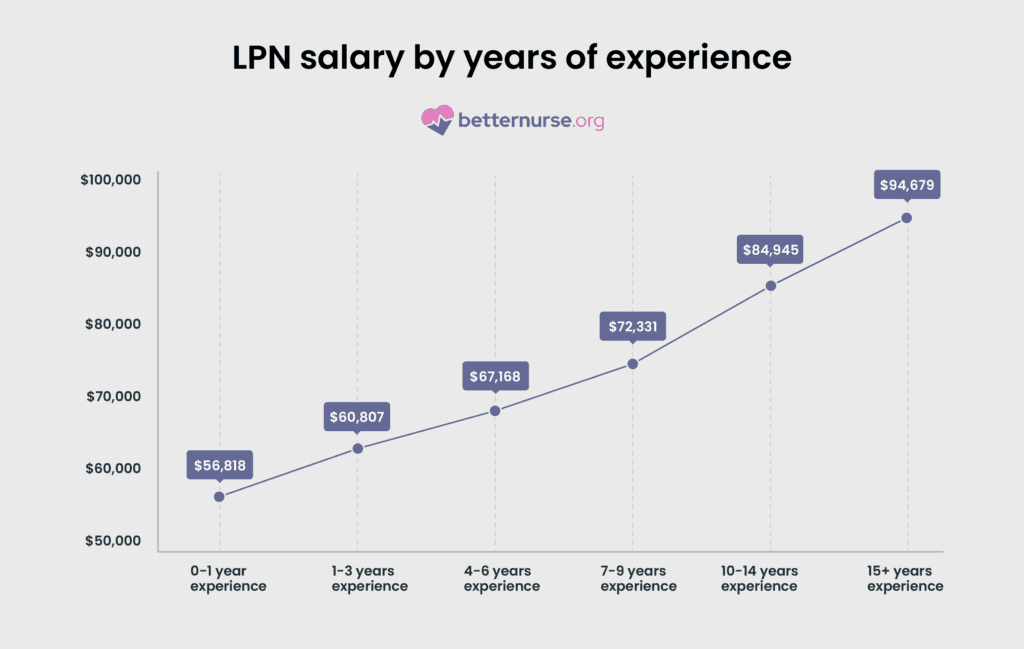
The salary of a Licensed Practical Nurse (LPN) can vary depending on factors such as location, level of experience, and type of healthcare facility. On average, LPNs in the United States earn a competitive salary, with the median annual wage ranging from $45,000 to $50,000. LPNs may also have opportunities for overtime pay and additional benefits, such as health insurance and retirement plans. It’s important to note that salary figures may fluctuate over time due to factors like inflation and shifts in the healthcare industry.
Registered Nurse (RN) vs. Licensed Practical Nurse (LPN)
While both Registered Nurses (RNs) and Licensed Practical Nurses (LPNs) play vital roles in the healthcare system, there are key differences between the two. RNs undergo a more extensive education, typically earning an associate’s or bachelor’s degree in nursing. They have a broader scope of practice, which includes performing assessments, creating care plans, and administering medications. LPNs, on the other hand, complete a shorter, focused program and provide essential nursing care under the supervision of RNs and physicians.
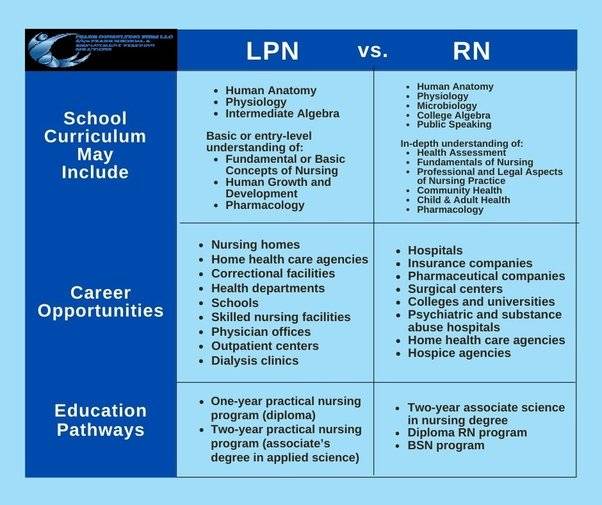
Transitioning to Other Nursing Positions
Licensed Practical Nurses (LPNs) who wish to advance their careers and take on more responsibilities have several options for transitioning to other nursing positions. One common pathway is to pursue further education to become a Registered Nurse (RN). This can be achieved through an RN bridge program, which allows LPNs to build upon their existing knowledge and skills.
Additionally, LPNs can choose to specialize in a particular area of nursing, such as pediatrics, geriatrics, or critical care, by obtaining certifications or completing additional training programs. This specialization can open doors to more specialized roles with increased earning potential.
For those interested in leadership or administrative roles, pursuing a Bachelor of Science in Nursing (BSN) or a Master of Science in Nursing (MSN) can provide the necessary education and qualifications.
Conclusion
Becoming a Licensed Practical Nurse (LPN) is a rewarding and impactful career choice in the healthcare field. With a relatively short educational pathway and a strong demand for skilled professionals, LPNs play an essential role in providing quality patient care across various healthcare settings. Possessing qualities such as compassion, attention to detail, and effective communication, LPNs make a positive difference in the lives of their patients. As LPNs continue to grow and develop in their careers, opportunities for advancement and specialization further enhance the potential for a fulfilling and dynamic profession in nursing. Whether embarking on this journey as a new career or transitioning from another role, the role of an LPN offers a meaningful and impactful way to contribute to the well-being of individuals and communities.
Frequently Asked Questions
- Is an LPN the same as a practical nurse?
- Yes, an LPN (Licensed Practical Nurse) and a practical nurse are the same. The term “practical nurse” is often used interchangeably with LPN. Both refer to a licensed healthcare professional who provides direct patient care under the supervision of registered nurses or doctors.
- Where do most LPNs work?
- LPNs work in a variety of healthcare settings. The most common places where LPNs work include hospitals, nursing homes, long-term care facilities, clinics, physician offices, rehabilitation centers, and home health agencies. They can also be found in schools, correctional facilities, and community health organizations.
- What is the difference between an LPN and BSN nurse?
- The main difference between an LPN (Licensed Practical Nurse) and a BSN (Bachelor of Science in Nursing) nurse lies in their education and scope of practice. LPNs complete a shorter, focused program (usually 12 to 18 months) and provide basic nursing care under the supervision of registered nurses or physicians. BSN nurses, on the other hand, hold a bachelor’s degree in nursing, which typically takes four years to complete. BSN nurses have a broader scope of practice, including assessments, care planning, and medication administration, and may pursue more advanced roles in nursing.
- What is the highest paying LPN salary?
- The highest paying LPN salaries can vary depending on factors such as location, level of experience, and type of healthcare facility. In some regions with high demand for healthcare professionals, experienced LPNs with specialized skills or certifications may earn higher salaries. Additionally, LPNs in specialized areas like critical care or perioperative nursing may command higher wages.
- What type of LPN makes the most money?
- LPNs who work in specialized areas or with advanced certifications tend to earn higher salaries. For example, LPNs specializing in areas such as critical care, perioperative nursing, or geriatrics may have the potential to earn higher wages compared to those in more general settings. Additionally, LPNs who work in regions with higher costs of living or in areas with a higher demand for healthcare professionals may have the opportunity for increased compensation.
- Who gets paid more, an LPN or RN?
- Generally, Registered Nurses (RNs) tend to earn higher salaries compared to Licensed Practical Nurses (LPNs). This is because RNs undergo more extensive education, often holding a bachelor’s or associate’s degree in nursing, which qualifies them for a broader range of responsibilities and specializations. However, it’s important to note that salaries can vary depending on factors such as location, experience, and specialty. In some cases, experienced LPNs with specialized skills or certifications may earn salaries comparable to or even higher than entry-level RNs.

 Add Instructions
Add Instructions
